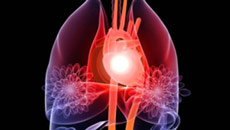Adding just two minutes of walking each hour to your routine can offset the health hazards of sitting for long periods of time, says a study led by an Indian-origin researcher.
A "trade-off" of sitting for light intensity activities for two minutes each hour is associated with a 33 percent lower risk of dying, the findings showed.
Numerous studies have shown that sitting for extended periods of time each day leads to increased risk for early death, as well as heart disease, diabetes and other health conditions.
"It was fascinating to see the results because the current national focus is on moderate or vigorous activity. To see that light activity had an association with lower mortality is intriguing," said lead author Srinivasan Beddhu, professor of medicine at the University of Utah School of Medicine.
The researchers examined 3,243 participants to see whether longer durations of low intensity activities (e.g. standing), and light intensity activities (e.g. casual walking, light gardening, cleaning) extends the life span of people who are sedentary for more than half of their waking hours.
Beddhu explained that while it is obvious that it takes energy to exercise, strolling and other light activities also use energy -- and even short walks add up to a lot when repeated many times over the course of a week.
Assuming 16 awake hours each day, two minutes of strolling each hour expends 400 kilocalorie (kcal) each week.
That number approaches the 600 kcal it takes to accomplish the recommended weekly goal of moderate exercise.
"Based on these results, we would recommend adding two minutes of walking each hour in combination with normal activities, which should include 2.5 hours of moderate exercise each week," Beddhu noted.
Moderate exercise strengthens the heart, muscles, and bones, and confers health benefits that low and light activities cannot.
The study was published in the Clinical Journal of the American Society of Nephrology (CJASN).





